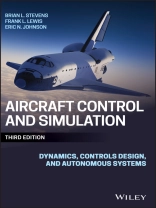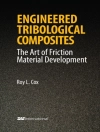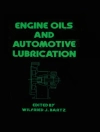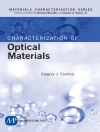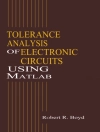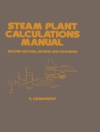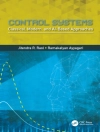Get a complete understanding of aircraft control and simulation
Aircraft Control and Simulation: Dynamics, Controls Design, and Autonomous Systems, Third Edition is a comprehensive guide to aircraft control and simulation. This updated text covers flight control systems, flight dynamics, aircraft modeling, and flight simulation from both classical design and modern perspectives, as well as two new chapters on the modeling, simulation, and adaptive control of unmanned aerial vehicles. With detailed examples, including relevant MATLAB calculations and FORTRAN codes, this approachable yet detailed reference also provides access to supplementary materials, including chapter problems and an instructor’s solution manual.
Aircraft control, as a subject area, combines an understanding of aerodynamics with knowledge of the physical systems of an aircraft. The ability to analyze the performance of an aircraft both in the real world and in computer-simulated flight is essential to maintaining proper control and function of the aircraft. Keeping up with the skills necessary to perform this analysis is critical for you to thrive in the aircraft control field.
* Explore a steadily progressing list of topics, including equations of motion and aerodynamics, classical controls, and more advanced control methods
* Consider detailed control design examples using computer numerical tools and simulation examples
* Understand control design methods as they are applied to aircraft nonlinear math models
* Access updated content about unmanned aircraft (UAVs)
Aircraft Control and Simulation: Dynamics, Controls Design, and Autonomous Systems, Third Edition is an essential reference for engineers and designers involved in the development of aircraft and aerospace systems and computer-based flight simulations, as well as upper-level undergraduate and graduate students studying mechanical and aerospace engineering.
Tabella dei contenuti
Preface xi
1 The Kinematics and Dynamics of Aircraft Motion 1
1.1 Introduction 1
1.2 Vector Operations 3
1.3 Matrix Operations on Vector Coordinates 7
1.4 Rotational Kinematics 16
1.5 Translational Kinematics 20
1.6 Geodesy, Coordinate Systems, Gravity 23
1.7 Rigid-Body Dynamics 34
1.8 Advanced Topics 44
References 58
Problems 59
2 Modeling the Aircraft 63
2.1 Introduction 63
2.2 Basic Aerodynamics 64
2.3 Aircraft Forces And Moments 75
2.4 Static Analysis 101
2.5 The Nonlinear Aircraft Model 108
2.6 Linear Models And The Stability Derivatives 116
2.7 Summary 137
References 138
Problems 139
3 Modeling, Design, and Simulation Tools 142
3.1 Introduction 142
3.2 State-Space Models 144
3.3 Transfer Function Models 155
3.4 Numerical Solution of The State Equations 170
3.5 Aircraft Models For Simulation 179
3.6 Steady-State Flight 185
3.7 Numerical Linearization 199
3.8 Aircraft Dynamic Behavior 205
3.9 Feedback Control 213
3.10 Summary 241
References 241
Problems 243
4 Aircraft Dynamics and Classical Control Design 250
4.1 Introduction 250
4.2 Aircraft Rigid-Body Modes 257
4.3 The Handling-Qualities Requirements 274
4.4 Stability Augmentation 287
4.5 Control Augmentation Systems 303
4.6 Autopilots 322
4.7 Nonlinear Simulation 344
4.8 Summary 371
References 372
Problems 374
5 Modern Design Techniques 377
5.1 Introduction 377
5.2 Assignment of Closed-Loop Dynamics 381
5.3 Linear Quadratic Regulator With Output Feedback 397
5.4 Tracking A Command 413
5.5 Modifying The Performance Index 428
5.6 Model-Following Design 455
5.7 Linear Quadratic Design with Full State Feedback 470
5.8 Dynamic Inversion Design 477
5.9 Summary 492
References 492
Problems 495
6 Robustness and Multivariable Frequency-Domain Techniques 500
6.1 Introduction 500
6.2 Multivariable Frequency-Domain Analysis 502
6.3 Robust Output-Feedback Design 525
6.4 Observers and The Kalman Filter 529
6.5 Linear Quadratic Gaussian/Loop Transfer Recovery 554
6.6 Summary 577
References 578
Problems 580
7 Digital Control 584
7.1 Introduction 584
7.2 Simulation of Digital Controllers 585
7.3 Discretization of Continuous Controllers 588
7.4 Modified Continuous Design 598
7.5 Implementation Considerations 611
7.6 Summary 619
References 620
Problems 620
8 Modeling and Simulation of Miniature Aerial Vehicles 623
8.1 Introduction 623
8.2 Propeller/Rotor Forces and Moments 630
8.3 Modeling Rotor Flapping 640
8.4 Motor Modeling 645
8.5 Small Aerobatic Airplane Model 648
8.6 Quadrotor Model 654
8.7 Small Helicopter Model 655
8.8 Summary 660
References 661
Problems 661
9 Adaptive Control with Application to Miniature Aerial Vehicles 664
9.1 Introduction 664
9.2 Model Reference Adaptive Control Based On Dynamic Inversion 665
9.3 Neural Network Adaptive Control 668
9.4 Limited Authority Adaptive Control 674
9.5 Neural Network Adaptive Control Example 680
9.6 Summary 709
References 709
Problems 711
Appendix A F-16 Model 714
Appendix B Software 723
Index 733
Circa l’autore
BRIAN L. STEVENS is a retired Senior Research Engineer from the Georgia Institute of Technology Research Institute, where he continues to teach classes in Guidance, Navigation, and Control.
FRANK L. LEWIS is a Distinguished Scholar Professor, Distinguished Teaching Professor, and Moncrief-O’Donnell Chair at the University of Texas at Arlington Research Institute.
ERIC N. JOHNSON is the Lockheed Martin Associate Professor of Avionics Integration, Daniel Guggenheim School of Aerospace Engineering at Georgia Institute of Technology.
